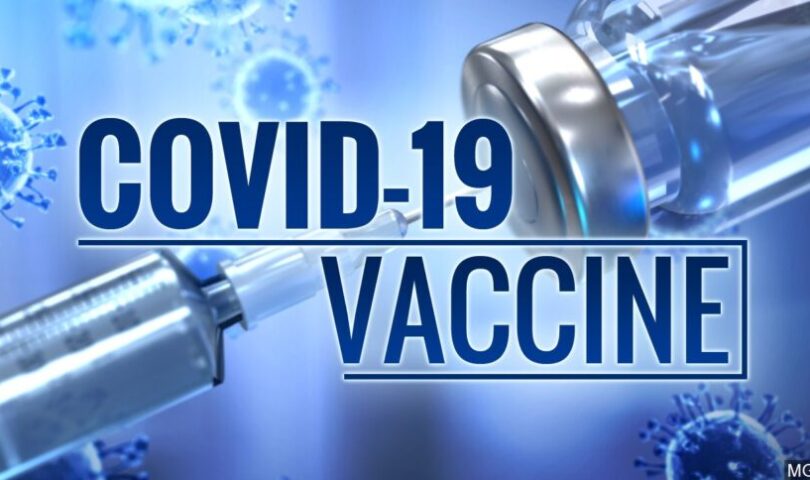LANSING, MICH. The Michigan Department of Health and Human Services (MDHHS) and the Protect Michigan Commission announce details for a new program to help enhance the state’s vaccine equity strategy. Michigan providers that are federally enrolled to administer COVID-19 vaccines are encouraged to apply by Monday, March 1 if they can help remove barriers for those ages 60 and up who are most vulnerable to the effects of the virus. Applicants accepted into the community outreach pilot project can request up to 2,500 doses.
“We want to make sure all Michiganders have access to the safe and effective vaccines as we work toward our goal of vaccinating 70% of Michiganders age 16 and up as quickly as possible,” said Dr. Joneigh Khaldun, chief medical executive and chief deputy for health. “We are working hard to eliminate any barriers to vaccine access. Your ability to get a vaccine should not be impacted by whether you are in a rural or urban part of the state, are lower income, or don’t have access to a car, a computer, the Internet or don’t speak English. This is what equity means.”
The goal of the new pilot program is to help remove barriers to vaccine access for Michiganders 60 and older who live in communities with high Social Vulnerability Index (SVI) and high COVID-19 mortality rates. SVI is a tool that uses census data to identify places where a community may have more difficulty preventing human suffering and financial loss in a disaster. It assesses the extent that 15 known indicators are present within a community based on socioeconomic status, family composition and disability, minority status and language, housing and transportation.
Providers are encouraged to apply who are already federally approved to administer the COVID-19 vaccines and can successfully manage the vaccine including storage, identifying a method for second doses, and entering doses administered into the Michigan Care Improvement Registry (MCIR) within 24 hours. Applicants will help to identify the barriers in their communities and the specific strategies they will take to address those barriers, including, but not limited to:
- Transportation.
- Language.
- Access related to sensory, cognitive, emotional or physical disabilities.
- Vaccine hesitancy.
- Other barriers experienced by underserved and minority populations.
Applicants are also encouraged to highlight strong partnerships with community-based organizations, as well as demonstrate their ability to effectively reach out to their most vulnerable residents over the age of 60.
The application letters submitted will identify specific strategies that can be implemented as soon as the provider is awarded a vaccine allocation. Applications must be emailed by 5 p.m., Monday, March 1. An external review panel will complete the review of the applications and select awardees by Monday, March 8. The intent is to have the vaccine doses to the providers chosen for the pilot program no later than Wednesday, March 10. The vaccine doses must be administered within two weeks of receipt. At that time, MDHHS will review the success of the pilot.
“With this community outreach pilot project, we want to increase the vaccination rate of individuals who are most at risk of negative COVID-19 outcomes and to identify innovative practices for effective vaccination strategies for vulnerable communities,” Khaldun said. “We will consider continuing the program based on the availability of the vaccine and the success of the pilot in achieving our goals to remove barriers.”
Questions about the application should be submitted to MDHHS-VaccineOutreach@michigan.gov. The application will be no longer than three pages, as well as include a list of partners and two letters of support from that list of partners.
MDHHS announced the state’s strategy to get 70% of Michiganders age 16 and older vaccinated as quickly as possible at the end of January. The strategy is being guided by the following principles:
- All Michiganders have equitable access to vaccines.
- Vaccine planning and distribution is inclusive and actively engages state and local government, public and private partners; and draws upon the experience and expertise of leaders from historically marginalized populations.
- Communications are transparent, accurate, and frequent public communications to build public trust.
- Data is used to promote equity, track progress and guide decision making.
- Resource stewardship, efficiency, and continuous quality improvement drive strategic implementation.
The most recent vaccine prioritization guidance can be found on Michigan’s COVID-19 website.
Information around this outbreak is changing rapidly. The latest information is available at Michigan.gov/Coronavirus and CDC.gov/Coronavirus.
- Laker Men’s Basketball Handle Kuyper 88-55 - December 23, 2024
- MYWAY Sault Bridge Brawl & NEMWA Regional Results - February 22, 2024
- Crawford County Prosecutor clears State Trooper in the fatal shooting of man earlier this month - February 23, 2023



